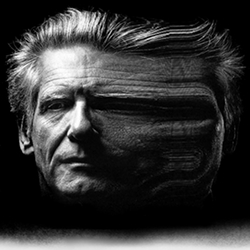
Review: Warrior
There is a fascinating dual nature of war, a subtle correlation between emotional pain and that unmistakably male tendency to use physical violence to eradicate the sting of those emotions. What we too easily forget is that beating on someone’s outward flesh does nothing to bring peace to the inward scars that we carry through life. And just as emotional brutality trumps physical violence, there must be something else capable of ushering in the peace we seek – something stronger than blunt force.
Warrior is about the complex journey to find that peace. Directed by Gavin O’Connor, the film is a staggering epic of humanity, a film capable of both rendering tender intimacy on a grand scale and finding the elusive emotional center in even the most brutal battle.
The film is built around two thorough and fascinating character studies. Each could exist on its own, but the film raises the stakes by tying them to a shared history and building their stories to a fever pitch when they finally merge. Brendan and Tommy Conlon (Joel Edgerton and Tom Hardy) grew up under the debilitating weight of their father, former boxer Paddy’s (Nick Nolte), alcoholism. Each brother found his own way to escape the pain – Brendan took the more traditional route of getting married, starting a family, and becoming a teacher. Tommy, on the other hand, is full of stubborn rage. He left with his mother as a teenager and, when she died, joined the service. He has dedicated his life to the physical notion of war, and has now returned home with no one to turn to but the family ties he long ago severed.
I haven’t even scratched the surface of the story’s central thrust, which is that these brothers, both at a point of personal desperation, return to their roots as amateur fighters by training for a high-stakes Mixed Martial Arts tournament in Atlantic City. So yes, this is a “fight movie,” but in Warrior, the sport is merely a conduit for the emotional journey of its characters, the physical manifestation of the deeper turmoil that resides inside these very different brothers.
And yet the fighting element is not a stunt or a forced plot device – it arises organically out of the fears and desires of its characters. For Brendan, whose teaching salary is supplemented by entering underground fights in strip club parking lots, the prize money is necessary to avoid foreclosure on his home. For Tommy, who enters the tournament full of explosive anger under the tentative training of his father, the need for money revolves around responsibilities that the film only reveals gradually.
I’ve already spent too long regurgitating the plot, for the subtleties and details that transpire should not be spoiled and cannot be adequately conveyed on paper. While the film could easily be innocuous as a story of muscle-bound brutes beating the hell out of each other, it transcends all clichés and expectations and delivers a human story of extraordinary emotional consequence. The screenplay, by O’Connor, Anthony Tambakis, and Cliff Dorfman, doesn’t focus on the fighting itself, but the complex lives of the fighters and the reasons they choose to fight. It also deftly explores the irony of these wounded souls fighting for their humanity in decidedly inhumane ways. We feel not only every crushing blow, but the weight of anger and sorrow behind them.
Amid all the masculine brutality – and the masculine angst – is a respect for the women that fight to bring balance to the violent tumult of these men’s lives, an unmistakable reverence to a grounded femininity. Jennifer Morrison is fabulous as Brendan’s wife, who shares his desperation and is loyal to his desires, but who offers a voice of reason that cannot be dismissed. She doesn’t refuse Brendan’s right to enter the tournament, nor does she approve. Similarly, the specter of Brendan and Tommy’s mother looms large over the story, a figure of the grace that is absent from these men’s lives, one of many dark depths in a backstory that the film subtly suggests but does not fully explicate – we have to fill in the blanks ourselves.
Edgerton and Hardy are wonderful here, playing two sides of the same coin, opposing personalities long ago fractured, brought together again out of seeming chance, but more likely out of psychic need. When they finally stand toe-to-toe in the film’s finale, it doesn’t seem like a plot mechanism but a fated meeting to settle a lifetime of suppressed pain. And Nolte is an automatic Oscar contender as the father who authored the pain in his sons’ lives. He wants redemption, but maybe he doesn’t deserve it. Weaving these characters and performances together is O’Connor, a filmmaker who has brought sensitivity to otherwise broadly masculine subject material before, in films like Miracle and Pride and Glory. But here he transcends even the strong promise of his earlier work, delivering an absolute masterwork of humanity that captures the physical and emotional crushing of the human soul, and explores the complex journey to find forgiveness and redemption.
Related Posts
Jason McKiernan
Latest posts by Jason McKiernan (see all)
- Oscar Projections, 10/11/2013 - October 12, 2013
- Projection: Oscar – A Late Arrival to the Land of Confusion - October 9, 2013
- Review: Gravity (2013) - October 4, 2013





























